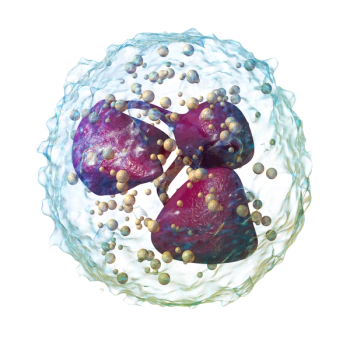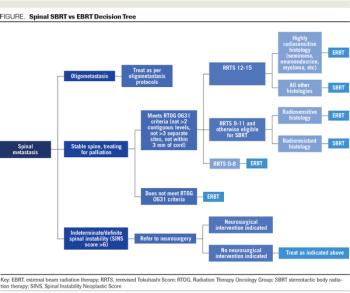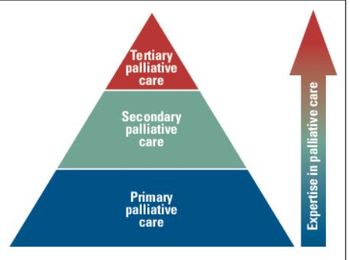
Explore the vital role of palliative care in oncology, addressing misconceptions and enhancing patient support for better end-of-life experiences.

Your AI-Trained Oncology Knowledge Connection!


Explore the vital role of palliative care in oncology, addressing misconceptions and enhancing patient support for better end-of-life experiences.

Complete responses were numerically higher without significance in standard triple antiemetic therapy with olanzapine vs placebo.

Diagnostic CT-enabled radiation therapy also reduces patient-reported time burden in the palliative setting.

Margaret Rosenzweig, PhD, CRNP-C, AOCNP, FAAN, discusses how nursling-led palliative care may improve advanced cancer care planning uptake based on a secondary analysis of the CONNECT study.

Incorporating nursing-led palliative care may help to improve advanced care planning among those with advanced cancer, especially those without access to specialty palliative care.

Authors Dori Beeler, PhD; Shelley Wang, MD, MPH; and Viraj A. Master, MD, PhD, spoke with CancerNetwork® about a review article on cancer-related fatigue published in the journal ONCOLOGY®.

Experts explored existing data to create a universal definition of integrative oncology, in tandem with feedback from Society of Integrative Oncology, to better explains what the term means.

Positive preliminary data on FAP-2286 linked to the radionuclide lutetium-177 across a diverse array of adenocarcinomas was reported from the phase 1/2 LuMIERE trial.

Trends towards missing key moments for end-of-life discussions when meeting with patients who have stage IV cancer can be overcome with existing strategies for successful EOL conversations.

A cross-sectional study from patient survey indicates knowledge of palliative care services are lacking across patient populations.

STAR-OLZ has been found to significantly reduce adverse effects of chemotherapy-induced nausea and vomiting in clinical trials.

Based on phase 3 data, plinabulin plus granulocyte colony-stimulating factor is being considered by the FDA for the prevention of chemotherapy-induced neutropenia.

Research utilized a convenience sample of patients to determine loneliness during the COVID-19 pandemic, emphasizing factors including anxiety, depression, and fatigue, among other things.

Nurse Navigator Janeen Bazan, RN, OCN, BSN, talks about the 4R Care Sequence® and its impact on the care of patients with breast cancer at the 2021 Oncology Nursing Society Annual Congress.

Better adherence to oral chemotherapy was seen in patients who used a smartphone mobile app, according to a presentation at the Oncology Nursing Society’s 46th Annual Congress.

A new Chemotherapy Education Policy at an NCCN-designated oncology center was received well by nursing and pharmacy staff, yet failed to meet its goals of better-informing patients about their therapy prior to their first dose.

A poster presentation from the Oncology Nursing Society’s 46th Annual Congress describes a single-center clinician education program aimed at improving patient satisfaction.

A recent analysis revealed that patients with cancer who scored highly on depression and anxiety scales were more likely to suffer from symptoms of chemotherapy-induced nausea.

Advanced practice nurses and dieticians are encouraged to empower patients to improve their lifestyles through diet and exercise in a presentation at the Oncology Nursing Society’s 46th Annual Congress.

ABSTRACT Symptomatic spinal metastasis is a frequent complication of cancer that had been treated, until relatively recently, with primitive techniques to modest radiation dose levels, with a baseline assumption of limited survival and poor patient performance in that setting. In the era of targeted and personalized therapies, many patients are living longer and more functionally and are able to manage their disease on the model of chronic illness. Given these developments, an attractive option is the use of stereotactic body radiation therapy (SBRT) to deliver high biologically effective doses of radiation conformally to maximize the palliative gains of treatment. However, randomized data to guide practice are scarce. We review the extant literature and present an algorithmic approach to selecting patients with metastatic disease for palliative spinal SBRT favoring the results of available randomized studies and remaining within the safety constraints supported by evidence from randomized trials.

The latest episode of CancerNetwork®’s podcast examines a review article focusing on spinal metastases and stereotactic body radiation therapy.

According to researchers, mindfulness-based intervention may have a positive effect on subjective measures of cognitive impairment in breast cancer survivors.

Researchers found that breast cancer survivors who were prescribed adjuvant endocrine therapy and regularly performed moderate physical activity reported better health-related quality-of-life.

Using acupuncture to help manage pain associated with cancer treatment, may offer additional tools to help manage function and quality of life in survivors, according to Jun J. Mao, MD, MSCE.

Oncology advanced practice registered nurses can play a critical role in providing primary palliative care to patients with cancer.

A small study has found that men with cancer were less likely than women to prefer palliative care if informed that continued treatment would not be helpful.

This article reviews the ways in which palliative care and oncology teams can collaborate to provide high-quality care to patients and their families; it also provides practical tips for oncologists who wish to initiate primary palliative care for their patients.

The FDA has granted Breakthrough Therapy and Fast Track designation to GC4419, for reduction of severe oral mucositis caused by radiation therapy.

In a Belgian study, integration of palliative care as part of cancer care increased the quality of life of patients with advanced malignant solid tumors.

The early integration of oncology and palliative care enhanced coping strategies and improved QOL for patients newly diagnosed with incurable lung or GI cancer.